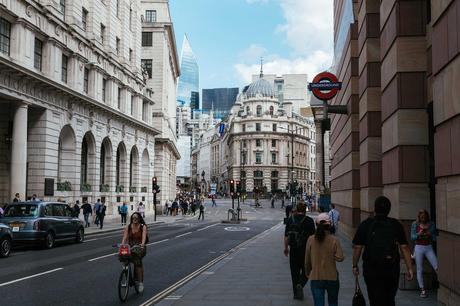The sterling against the USD is at 1.3894, ahead of the Scotland poll and the BOE monetary policy on Thursday, though lockdown easing lifts the economy.

In March 2020, the GBP/USD currency pair fell sharply to 1.1650 levels, caused by the coronavirus pandemic. The currency pair then rose to 1.40 levels in February 2021. The sterling is now jittery over the oncoming Scotland elections and the Bank of England monetary policies ahead on Thursday. The GBP/USD currency pair has been volatile, trading between 1.3805 and 1.3920 on May 3 and 4.
Sterling Jittery Ahead of BOE Policies
Numerous policy announcements are expected to mitigate the economic disruptions caused by the coronavirus pandemic. The Bank of England will bring in measures to support the labor force and businesses to remove the negative impacts. The sterling waits for policy announcements from the BOE.
The furlough Scheme was announced in March 2021 by the Chancellor as a support program. Chancellor Rishi Sunak has said that the furlough payment is helped to bring down unemployment problems. The Furlough Scheme has now been extended up to September 30, 2021.
The BOE Monetary Policy Committee (MPC) has introduced various new schemes to help the economy, such as cheap loans to provide additional aid towards business lending.
The government's budget deficit is increasing as borrowings rise. Tax revenues are slowing down while government spending surges. The government has spent around £250 billion in 2020, while more than £90 billion expenditure is expected this year.
The Bank of England has kept key interest rates at a record low at 0.1% and may continue its policy for some more time to help the economy recover. However, Governor Andrew Bailey has made a statement that a rise in interest rates will bring an improvement in the economy. Investors expect a hike in rates in the upcoming policy meeting to be held on Thursday.
Quantitative easing has improved the economy, but rising inflation will be a cause of concern in the near future. About £895 billion was introduced earlier as a bond-buying program to provide quantitative easing into the economy.
Scottish Election on Thursday
Scotland heads for polls on May 6 as they elect their new parliament. The SNP has governed Scotland, and recent polls give the SNP lead in both the constituency. The elections will be one of the most important decisions in Scottish history. The future of the UK as a union is at stake.
The sterling was volatile during the Brexit chaos and calmed down later. The election on Thursday will bring back volatility into the pound if the referendum looks like a certainty.
UK Lockdown Restrictions Easing to Strengthen Sterling
Britain is poised to ease down current lockdown restrictions. Non-essential shops, restaurants, and pubs are to reopen outdoors. Gyms, hairdressers and barbers parks, and community centres will also reopen, says PM Boris Johnson.
However, scientists say that England is not yet out of the woods. They claim that if the economy eases restrictions, it might bring in the third wave of the pandemic. The British pound saw some recovery with fresh selling around the US dollar.
The GDP in January was 9% lower than the pre-pandemic levels. GDP had dropped 9.8% in 2020, which is the steepest decline in the United Kingdom. Easing lockdown restrictions will restore confidence in the sterling.
Sterling Reacts on Inflation
Inflation is increasing with the rise in petrol prices. The consumer price index has gone up to 0.7% in March, while it was 0.4% in February. The coronavirus pandemic that ravaged the country has pulled down economic activity.
Essential food prices such as bread and cereals have become cheaper. After the lockdown, there is an increase in demand for goods and services. Households are expected to increase spending once lockdown restrictions are removed. Prices of clothing and footwear have increased.
Brexit may be another cause for the increase in inflation. The government has cut down VAT for tourism and the hospitality sector, which has pushed up inflation. The sterling reacts with inflation numbers.
With higher inflation, the central bank may increase interest rates, say experts. Higher rates will keep inflation stable at 2%.
Economic Overview Shows Improvement
The Nationwide Housing Price Index that measures the change in the selling price of mortgaged homes is at 2.1%. The reading is above expectations at 0.5%, which is bullish for the British Pound.
The job outlook in the United Kingdom has improved. Some indicators suggest that the employment trend is stabilizing. The stimulus package from the Joe Biden administration of $1.9 trillion billion has spilled over to the UK and has benefited the British economy as well. The weakness in the US dollar is helping the sterling.
EUR/GBP currency pair went below the psychological mark at 1.20 levels but recovered slightly during trading hours on Tuesday, May 4.
The US dollar index is trading above the 91.00 levels on Tuesday, May 4, with better sentiment improving the greenback. The 200 DMA at 91.95 will be the next key resistance level.

